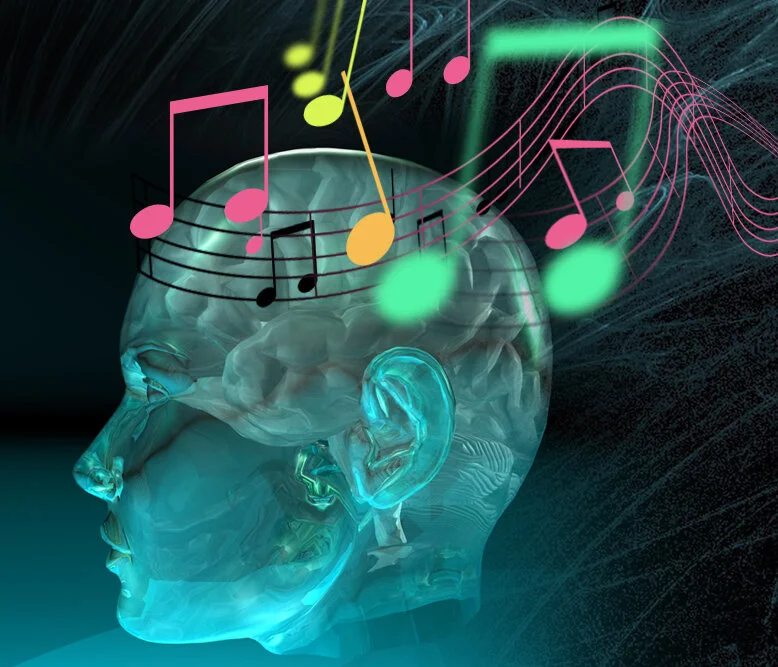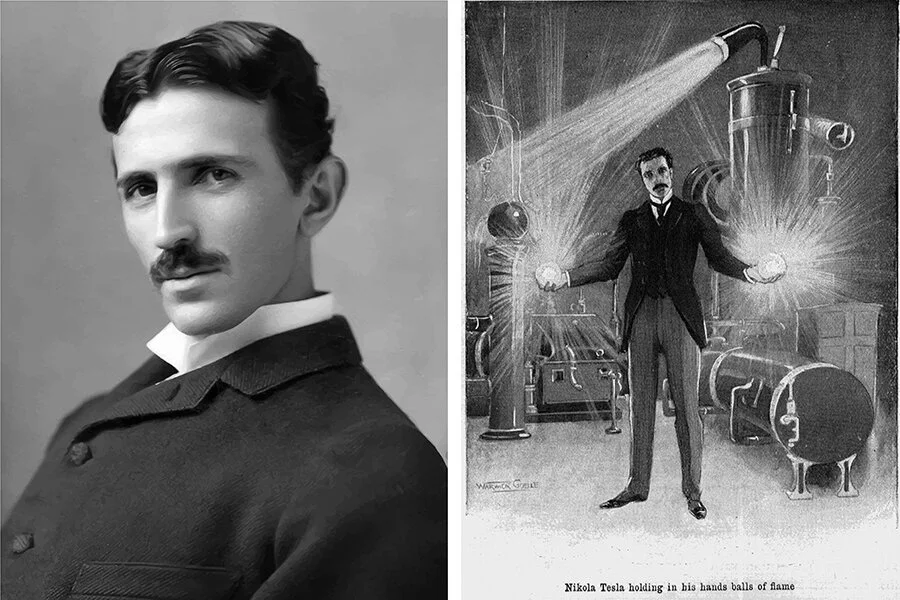By The Landlord
“It ascends me into the brain; dries me there all
the foolish and dull and crudy vapours which environ it;
makes it apprehensive, quick, forgetive, full of nimble, fiery, and
delectable shapes; which delivered o'er to the voice, the tongue,
which is the birth, becomes excellent wit.” — Shakespeare, Henry IV, Part II (Falstaff)
“The brain is a wonderful organ; it starts working the moment you get up in the morning and does not stop until you get into the office.” – Robert Frost
“Rabbit's clever," said Pooh thoughtfully.
"Yes," said Piglet, "Rabbit's clever."
"And he has Brain."
"Yes," said Piglet, "Rabbit has Brain."
There was a long silence.
"I suppose," said Pooh, "that that's why he never understands anything.” – A.A. Milne, Winnie-the-Pooh
“In each of us there is another whom we do not know.” – Carl Jung
“There's someone in my head, but it's not me.” – Pink Floyd
"Yes, I've been trepanned. That's quite an interesting experience, especially for my brain surgeon, who saw my thoughts flying around in my brain." – Keith Richards
The brain. What a blessing and a curse it is. The delicate engine. The sexiest organ. The squidgy Tardis. The creator of wonders and nightmares. Giver of pleasure and torture. The great connector. The thrashing machine that powers and builds endlessly, destroys itself, then starts all over again. The only thing in the universe that can contemplate itself. Wilful, brilliant, stupid, organised, chaotic, magnetic, in flux, constantly adapting, stuttering, tripping, rebooting, revelating. It is, in short, a magnificent mess.
Last week we turned our eyes and ears to stars, a topic that opened up a galaxy of fabulous nominations and, through space and time, stellar playlists by our guest guru. This week, we move from the outer universe to the inner one, a different infinity, where, as Emily Dickinson put it.” The brain is wider than the sky.” Where, in each, there are 100,000 miles of blood vessels, where, every second,100,000 chemical reactions occur, where 100 billion neutrons operate, where 100 to 1,000 trillion synapses create endless, mind-boggling connections. And it is indeed connections, of people, of ideas, of words, via the prism of music, that our bulging, lively, moist, and wonderful Song Bar is all about.
Sounds familiar …
What then is the human brain and how do we define it? Biologically speaking it’s an organ of soft nervous tissue contained in the skull of vertebrates, functioning as the coordinating centre of sensation and intellectual and nervous activity. What then is the mind? It’s defined as what the brain enables, for a person to be aware of the world, and of themselves, to think and to feel, the faculty of consciousness and thought, and is all about mental rather than physical processes. It is often hard to separate the two, except that the brain also has a broader, physical aspect, so this week the brain is he main focus in lyrics, or main subject matter of a song, but of course the mind can come into play. “Biology gives you a brain. Life turns it into a mind,” writes Jeffrey Eugenides in his novel, Middlesex.
And in tandem there’s the scientific study of psychology, of the mind’s functions and behaviour, which might also come up. Related to that is psychiatry, the study and treatment of mental illness, emotional disturbance, and abnormal behaviour. But largely let’s first focus on and begin with the brain, from which all else springs.
The cerebrum, the encephalon, then, is a remarkable, mysterious object. It weighs only 3 pounds, and while human male brains are generally heavier than women’s (2.9 to 2.6 pounds by comparison) that has nothing to do with intelligence. Lighter might be better. Einstein’s brain only weighed 2.7 pounds. It’s all about how it’s used, and in common experience that is pretty wasteful. It’s uses 20% of the total body’s blood and oxygen even though being on average just 2% of the weight. Your brain is hungry, filled with fat and lots of water too (70%).
However, it’s also very, very efficient. The world's fastest supercomputer requires 24 million watts of power to operate, but our brains only require 20 watts and, although we can’t really see it, also work 100,000 times faster. If you can identify what a thought it, we probably have around 70,00 of them a day. Oddly though, the average size of the human brain has decreased by 9 cubic inches over a period of the last 5,000 years. Is that because we need it less, in relatively more comfortable environment, to survive? That’s a good question. As Timothy Leary once put it: “We are dealing with the best-educated generation in history. But they've got a brain dressed up with nowhere to go.”
Full of contradictions, while the brain is the source of all our pleasure and pain, it is only a receiver and interpreter of physical sensations. The brain itself cannot experience pain. Neurosurgeons are indeed able to probe areas within the brain while patients are awake. They can then get real-time feedback from each patient, allowing them to pinpoint particular regions, like for speech or movement. What a thought.
But do brains always have to be in the head? Not in some species. The octopus has among the biggest brains of any. The brain in their head area can’t deal with all the intricate movements of tentacles, using a non-somatotopic system. The brainy giant Pacific octopus has three hearts, nine brains and blue blood. A central brain controls the nervous system. In addition, there is a small brain in each of their eight arms — a cluster of nerve cells that biologists say controls movement.
Deep thought? The giant Pacific octopus has nine brains in all
Having separate physical brains doesn’t always make you super intelligent. Leeches have, in effect, 32 brains. Its body can be divided into 102, but the internal structure is divided into 32 segments, each with a piece of brain. Specialisation means these are smart suckers, but not much good for anything else.
Many other activities expand and stimulate the brain. Before satellite navigation became ubiquitous, as well as the mini cab and Uber, official London Taxi drivers always had to take “The Knowledge”, an expansive memory test of every London street and how to find your way around them without looking at a map. Research has found those with this knowledge to, on average, have developed an expanded hippocampus, not to mention an opinion about just about everything.
But of course there are many other activities that stimulate the brain, and, not by coincidence, music is very, very good for it. When musicians play together, and their brainwaves are analysed, they synchronise. In This Is Your Brain On Music: Understanding a Human Obsession, Daniel J. Levitin describes, from a scientific standpoint many ways in which music can expand our brain function:
“Music may be the activity that prepared our pre-human ancestors for speech communication and for the very cognitive, representational flexibility necessary to become humans … There’s an ancient connection between movement and music. Most languages don't make a distinction between the words 'music' and 'dance.' And we can see that in the brain. When people are lying perfectly still but listening to music, the neurons in the motor cortex are firing.”
The good news …
This link between music and language is key. As Steven Pinker, the writer and cognitive psychologist, puts it: “You can't hear a word and just hear it as raw sound; it always evokes an associated meaning and emotion in the brain.”
Perhaps that’s why music and lyrics go so well together. Naturally there are many visitors to the Bar this week, again free of isolation. “Well,” says Carole King at the piano in the corner, “sometimes I get a lyric, and the lyric, you know, comes off the page, and goes into my brain and comes out with a melody. Other times, I may create a melody first.”
And alongside music, there are many ways for the brain to be stimulated. “The human brain long ago evolved a mechanism for rewarding us when we encountered new information: a little shot of dopamine in the brain each time we learned something new,” says Levitin.
"As work in neurosciences indicates, the acquisition of literacy necessitated a new circuit in our species' brain more than 6,000 years ago. That circuit evolved from a very simple mechanism for decoding basic information, like the number of goats in one's herd, to the present, highly elaborated reading brain,” says literacy, learning and dyslexia specialist Maryanne Wolf.
We all know that flash of pleasure in the head when we discover a song, or hear a great phrase, or discover a fascinating fact, and hopefully what is the most regular drink served here at the Bar.
“The brain is like a muscle. When it is in use we feel very good. The act of understanding is joyous,” says Carl Sagan, enjoying a pint.
“Books are the children of the brain,” says Jonathan Swift, perusing our bookshelves.
“Well, hey, I like nonsense; it wakes up the brain cells,” adds Dr. Seuss, drawing and chuckling to himself in the corner.
Edward de Bono tops that up with a real thumbs up here: “Humour is by far the most significant activity of the human brain.”
Ada Lovelace, who with an extraordinary brain conceived the idea of the first computer, is also here to say what stimulates her cerebrum: “I have my hopes, and very distinct ones, too, of one day getting cerebral phenomena such that I can put them into mathematical equations: in short, a law or laws for the mutual actions of the molecules of the brain (equivalent to the law of gravitation for the planetary and sideral world).”
Bright spark Nikola Tesla: ‘creation of the brain unfolding to success’
“I do not think there is any thrill that can go through the human heart like that felt by the inventor as he sees some creation of the brain unfolding to success... such emotions make a man forget food, sleep, friends, love, everything,” says a very excited Nikola Tesla, showing us his crackling coil. His great rival Thomas Edison is also here, and can’t compete with that, but adds a more general remark: “The chief function of the body is to carry the brain around.”
Carrying things around may well become the exclusive function of robots, but for now it is the hard-pressed Amazon employees who do a lot of a heavy lifting. Founder of this business behemoth is the world’s richest man, Jeff Bezos who reckons: “The human brain is an incredible pattern-matching machine.”
But will the human brain be completely overtaken by technology, if it hasn’t already? Tom Wolfe doesn’t think so: “No machines will ever truly fully figure the brain out, because the brain's performance is constantly altered or else constrained by this inanimate, rogue artefact you can't control, namely, speech.”
Perhaps one thing that allows the brain to beat machines is because it doesn’t do exactly what it is told or programmed to do, and is changing and unpredictable. “As “Life is funny that way. Sometimes the dumbest thing you do turns out to be the smartest,” says Robyn Mundell in Brainwalker.
While there are many great books about how clever the brain is, one of the most entertaining is Dean Burnett’s The Idiot Brain, a really entertaining read about how despite the brain’s wonders, it is “messy, fallible, and about 50,000 years out of date. We cling to superstitions, remember faces but not names, miss things sitting right in front of us, and lie awake at night while our brains endlessly replay our greatest fears.” Spot on.
So it is also the brain’s disfunction that makes it so stimulating for song, or any other creative genre. “Memory, the warder of the brain,” says Lady Macbeth, trying to block out the acts of herself and husband, battling with “vaulting ambition that o'erleaps itself”. And in Shakespeare’s Henry VI Part II, the Duke of Gloucester describes his restless mind. “My brain, more busy than the labouring spider / Weaves tedious snares to trap mine enemies.”
The brain can only function if it is treated right. It needs constant food and oxygen. Popular science writer and TV doctor David Perlmutter says: “Fat is your friend. The brain thrives on a fat-rich, low-carbohydrate diet. Saturated fat is a fundamental building block for brain cells. It's certainly interesting to consider that one of the richest sources of saturated fat in nature is human breast milk.”
But a healthy brain is also one that is organised well. Perhaps through meditation. Perhaps through other methods. In A Study in Scarlet, Sherlock Holmes creator Arthur Conan Doyle writes:
“I consider that a man's brain originally is like a little empty attic, and you have to stock it with such furniture as you choose. A fool takes in all the lumber of every sort that he comes across, so that the knowledge which might be useful to him gets crowded out, or at best is jumbled up with a lot of other things, so that he has a difficulty in laying his hands upon it. Now the skilful workman is very careful indeed as to what he takes into his brain-attic. He will have nothing but the tools which may help him in doing his work, but of these he has a large assortment, and all in the most perfect order.” If only I could be the skilful worker brain.
The brain is a packed attic
But inside that attic, or as some might call it, mind palace, what of consciousness? Here are two learned experts to shed some light on the idea:
“Consciousness turns out to consist of a maelstrom of events distributed across the brain. These events compete for attention, and as one process outshouts the others, the brain rationalises the outcome after the fact and concocts the impression that a single self was in charge all along,” says Steven Pinker.
But we can only be clear in our ignorance. “The widespread assumption is that somehow, the brain produces the mind; somehow millions of neurons fire signals at one another create or produce consciousness... but we have no idea how or why this happens. I'm afraid that in many cases, people in the tech world fail to understand that,” says historian Yuval Noah Harari, and author of Sapiens.
Bu now let us move inexorably towards lighter material from the world of film, TV and music. What more chaotic way is there to celebrate the cerebrum than via the crazy comedy starring Steve Martin, the Man With Two Brains, who falls for a woman living in a glass jar.
Many films about brains often centre upon anarchic disfunction, and of course zombies. Previously chosen for another topic, Unexplained Phenomena, is Jonathan Coulton’s song Re:Your Brains, which you might want to include in your intro as an example of a song about brains. Enjoy in particular the great chorus line: "All we want to do is eat your brains. We're not unreasonable, I mean nobody's gonna eat your eyes."
Braindead meanwhile is one of the great unsung indie comedy-horror films of the age, directed by Peter Jackson long before his Lord of the Rings success:
But in another sort of brain death, Braindead the TV series is a political satire in which Washington is overcome by alien ants who crawl inside the ears of politicians and more, eating part of their brains to make them more extreme, dogmatic and stupid in their behaviour. A functioning kind of zombie that behaves in a way that might be very familiar in recent times. Brain song specialist Coulton crops up again with this series of nifty musical episode summaries:
To close then, two more songs, contrasting two sides of the brain. Here’s Australia’s Tropical Fuck Storm, in a portrayal of the brain at its most frenetic, but also dysfunctional in Braindrops:
And finally of course, the Scarecrow, who despite having no brain, turns out to be the smartest of Dorothy’s friends:
So then, it is time to turn your brains to this highly stimulating song topic. There have been a variety of parallel ones in the past, such as songs about intelligence, and playlists here, as well as confusion and delusion, memory, mental illness, obsession, repression, addiction and a whole lot more, and these can be found by searching on this site or via our wonderful sister vault site, the Marconium. Talking of which, this week’s guru of benign brain-stimulating fact and memory is the marvellous Marco den Ouden! Place your brain-related songs in comments below until last orders on Monday at 11pm UK time, or until the bell rings, for playlists published on Wednesday. It’s worth a thinking about.
New to comment? It is quick and easy. You just need to login to Disqus once. All is explained in About/FAQs ...
Fancy a turn behind the pumps at The Song Bar? Care to choose a playlist from songs nominated and write something about it? Then feel free to contact The Song Bar here, or try the usual email address. Also please follow us social media: Song Bar Twitter, Song Bar Facebook. Song Bar YouTube. Subscribe, follow and share.
Please help keep Song Bar running with any donation:






